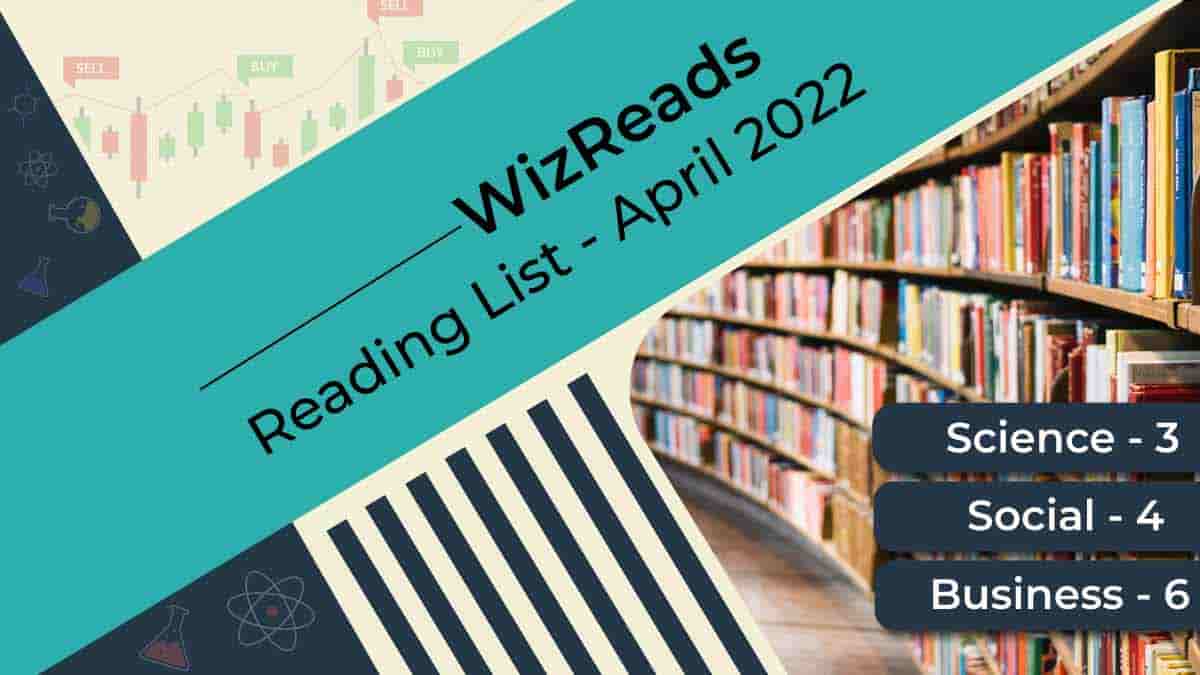The list of GRE GMAT reading comprehension passages recommended in the month of April 2022. We had a total of 9 article recommendations to boost your GRE GMAT RC practice.
This RC reading list was curated from a wide variety of articles. This month’s RC curation included 3 science and technology articles, 3 social sciences articles, 3 business and economy articles.
Floating Petri Dishes | April 27
From being thought of as ‘floating hotels of pleasure’ cruise ships were given the moniker ‘floating petri dishes’ following the pandemic. This long but easy read briefly discusses the history of cruising before it deep dives into the environmental, health, and economic impact of the cruising industry. Can the industry become better at self-regulating and will the industry recover from the COVID-19 effects soon?. Read the passage
Categories: Business and Economy | Easy
Multiverse – Talk Of The Town | April 25
Even if you are not a science fiction or MCU fan, you would have heard of the term ‘multiverse’. The talk of the town, especially with the recent Spiderman and Dr. Strange movies, the idea of a multiverse is no longer restricted to the pages of science fiction books and is now also the subject of recent scientific study and research. In fact, scientists have classified the different kinds of multiverses into four levels as you will find in this easy-to-read medium length read. Read the passage
Categories: Science and Technology | Easy
Bad Ads On Good Websites | April 20
This article is all about the deceptive and malicious advertisements you see on the internet. Starting from how an online ad is delivered to the user till the native ads on news/media websites, this article dwells on how the advertisers are exploiting the gray areas in the content policies. Read the passage
Categories: Business and Economy | Easy
How Much Of A Problem Is Political Correctness | April 18
Political correctness is correct. Or is it? A study shows that the majority of respondents to a survey believe that political correctness is a problem and no, the people who believe that are not what the stereotypes expext – angry white nationalists who refuse to give respect to the minorities. many people who look to political correctness negatively are the very same people it is supposed to protect – leading the author to the conclusion that it is a phenomenon more supported by an elite group of progressive and not the majority of the American populace.
The more pertinent question seems to be, “how much of a problem is political correctness” Read the passage
Categories: Social Sciences | Difficult
Stop Screaming! Who Wants To Be Around Angry People? | April 13
The first skill we highlight in our resume is that we are team-players. Collaboration is highly valued and highly measured in organizations. Willingness to work with others is often seen as a measure of success in potential leadership roles.
But does collaboration always have merit. In this medium-length article, the author contrasts collaboration with deep work and calls for an office culture that promotes focused work as much as it promotes team work. There could be hidden costs to productivity if all that we do is work with others and through meetings and memos. Read the passage
Categories: Social Sciences | Moderate
The Collaboration Curse | April 11
The first skill we highlight in our resume is that we are team-players. Collaboration is highly valued and highly measured in organizations. Willingness to work with others is often seen as a measure of success in potential leadership roles.
But does collaboration always have merit. In this medium-length article, the author contrasts collaboration with deep work and calls for an office culture that promotes focused work as much as it promotes team work. There could be hidden costs to productivity if all that we do is work with others and through meetings and memos. Read the passage
Categories: Business and Economy | Moderate
Brain’s Next Word Prediction | April 6
Have you received suggestions on auto completing your texts and emails as you type a sentence? The algorithms rely on next-word prediction technology and it turns out that the human brain can predict next words too – in fact, our ability to comprehend language is based on our brain’s capability to do predictive processing.
This moderate difficulty read from the Scientific American discusses a recent study in which researches matched machine-learning algorithms to brain data, in an effort to explain one of the brain’s high-level cognitive tasks. Read the passage
Categories: Science and Technology | Moderate
The Rise And Fall Of Cursive Writing | April 4
This write-up about cursive writing traces the rise and fall of cursive writing. Did you know that cursive writing was first developed in the 1840s? or that despite being removed from school curriculum in 2010, cursive writing is making a comeback in the US and is being reinstated as part of the curriculum in 14 states?
This easy read from the pages of the National Museum of American History follows the history of cursive writing through its many loops, twists, and turns – literally and figuratively. Read the passage
Categories: Social Sciences | Easy
Who issss the reptilest of all? April 1
Can a snake look in the mirror and go “mirror, mirror, on the wall, who issss the reptilest of all?”
This interesting read of medium difficulty presents a study that seems to indicate that even snakes – and not just humans and primates or other species of advanced intelligence – can recognize themselves, kind of like recognizing their reflection.
The article goes beyond presenting just the study results and also discusses prior research and the debate surrounding different abilities of animals. Read the passage
Categories: Science and Technology | Moderate

Great list. Keep posting more articles!!!